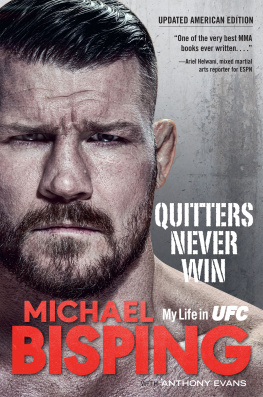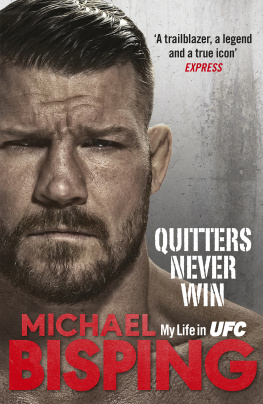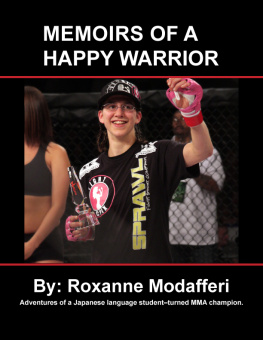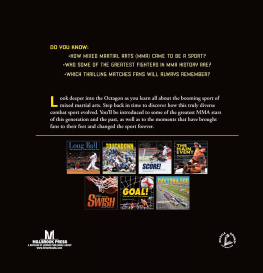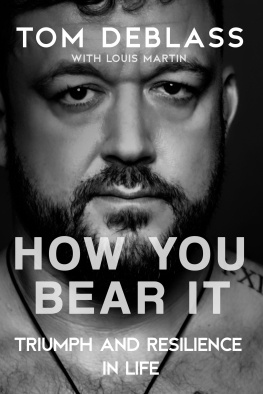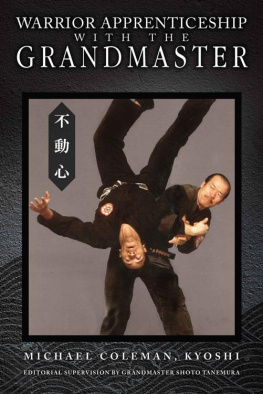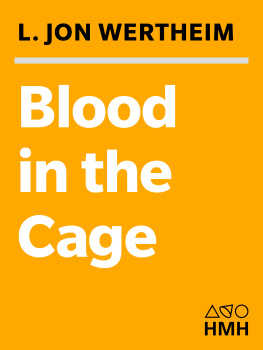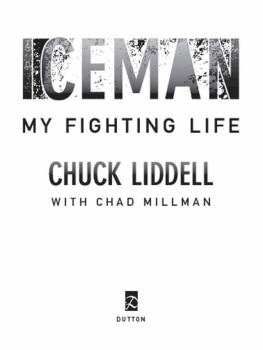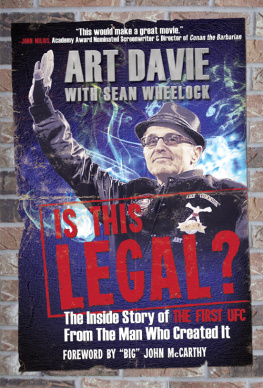



Copyright Michael Bisping 2020
First published in 2019 by Ebury Press, part of the Penguin Random House group of companies.
www.penguin.co.uk
All rights reserved, including the right to reproduce this book or portions thereof in any form whatsoever.
Images courtesy of Michael Bisping
For more information, email
Diversion Books
A division of Diversion Publishing Corp.
443 Park Avenue South, suite 1004
New York, NY 10016
www.diversionbooks.com
Book design by Neuwirth & Associates
Hardcover ISBN: 978-1-63576-705-6
eBook ISBN: 978-1-63576-707-0
Printed in The United States of America
1 3 5 7 9 10 8 6 4 2
Library of Congress cataloging-in-publication data is available on file.
For Rebecca. Without her,
the following wouldnt have
happened ...
CONTENTS

HAMMERED
I was born Michael Galen-Bisping on February 28, 1979. My mother, Kathleen, was taken to the Princess Marys Hospital at the small Akrotiri British military base near Limassol, in the south of Cyprus. Like with international embassies, military bases are sovereign territory. Id have to explain that I was actually born on British soil to UFC producers, who thought they needed to show the twin olive branch flag of Cyprus when I was introduced in the Octagon.
My parents met during my dads previous stationing in Ballykinler Barracks in County Down, Northern Ireland. My mother was one of twelve children and contracted polio as a child; shes extremely tough and mentally strong. A British officer getting involved with an Irish civilian was not the done thing during the mid-1970s but, at 6ft 6in tall, my dad had long since gotten used to a) attracting sideways glances and b) not really giving a fuck.
They married and had a big family. I came after my big brothers Stephen and Konrad, and twins Maxine and Adam followed, and then finally my little sister Shireen completed the Bisping family.
My dad left the army in 1983 after serving our country for seventeen years. The Cyprian heat had somewhat alleviated the after-effects of an IRA nail bomb, but as he started to get older those injuries began to prevent Dad from doing the job he loved, which he found frustrating.
Now Im the same age he was then, I can relate.
After his honorable discharge, Dad moved the whole family to Clitheroe, Lancashire, where his mother had grown up. My nan had died in a car crash years before, but we still had family in the area, and Dad felt he could better support us in the North rather than in London where hed been raised.
Worthy of a picture postcard, Clitheroe, population 15,517, is up a bit and a little to the left of Manchester. It has very narrow streets, old stonework buildings that blend into the countryside and even has an eleventh-century castle. At the American producers insistence, the Norman keep has lurked in the background of many a UFC Countdown show. You Americans love a good castle.
Despite the castle, the surrounding countryside and an old tea room that does a good trade in ice cream cones during those few days a year when its warm, Clitheroe is a working-class town. Monday to Friday, its factories and industrial estates are full of hard-grinding people andas Id come to know in my teenson the weekend Clitheroes pubs and bars are jam-packed with people celebrating the end of another week of hard work.
More of that later.
If we were underprivileged, the only reason I knew that was because bullies at St. Michael and St. Johns school made sure of it. Wearing the same school shirt days in a row, having a mediocre brand of sneakers on my feet (which may or may not have been waiting in a cupboard since they got too small for my older brothers)these were the main avenues of attack.
Im not going to bullshit you. I could say that, like Georges St-Pierre or Daniel Cormier, the reason I began in martial arts was with the honorable intention of learning how to defend myself. But the reason I started training was because I liked being a fighter. I followed my brother Konrad to a class one night and found that this was more than something I was good atthis was who I was.
The martial art I studied was a version of Japanese jujitsu called Yawara Ryu. It was a full-system style martial art with throws, grappling on the ground, submissions, and striking with fists, feet, knees, and elbows. If that sounds familiar, it should; years before the advent of the UFC or Pancrase in Japan, here was a proto-mixed martial art in the UK.
I remember the excitement of my first day of training. I didnt know what the hell I was doing, so I copied everybody else. When everyone stood in a line with their left fist and left foot forward, so did I. By the time anyone explained to me that, being left-handed, I was supposed to lead with my right it was too late. I was nowand forevera converted southpaw. That means I jabbed with my power handmaking it a potent weaponwhile my crosses were delivered from my weaker hand. It is a trade-off American boxers like Joe Louis and Michael Moorer had made on purpose. I did it by accident.
Yawara Ryu, as the schools which followed its curriculum called it, was developed by a visionary martial artist and sports scientist named Paul Davies.
Coming from a military background, my dad understood the life lessons I could gain from training. He was incredibly supportive of my new obsession. If I needed a new gi (white uniform) or gloves, I got them. He drove me all over the country as I entered not only jujitsu but full-contact karate and kickboxing tournaments. My dad was my driver, advocate, and cheerleaderhe also enjoyed giving me grief on the occasions I didnt win.
By the middle of high school Id usually enter and win the Under-15 category, then win the Under-18 and, if theyd let me, usually reach the final if not win the adult competition.
Paul Davies took notice. When the local Yawara Ryu club in Clitheroe shut down, Davies spoke to my dad about me training in Nottingham. Twice a week my dad would do the four-hour round trip so I could continue training.
It was a funny excuse for not doing homework:
I couldnt do it, Id tell my teachers, honestly enough. I went to Nottingham again last night and didnt get home till 1:00 a.m.
Michael, theyd say, theres no way anyone is driving you to Nottinghama four-hour round triptwice a week to do martial arts.
My dad is.
My favorite type of competition, by far, was Knockdown Sport Budo. Just as hed developed his own fighting system with Yawara Ryu, Paul Davies also created his own expression of combat sports with KSBO.
If you think of modern MMA and subtract wrestling takedowns and Brazilian jujitsu (BJJ) guard work and add a five-second count-out, thats essentially what a KSBO fight looked like. There were over thirty UK clubs affiliated with KSBOincluding several like London Shootfighters which would, in time, become full-blown MMA gyms and produce UFC fighters of their ownand many more in Sweden, France and elsewhere in Europe.
Four times a year, these clubs would send their best fighters to compete against each other in KSBO tournaments. I won titles in 1995, 1996, 1997, and 1998. Davies would telephone me incessantly, holding me hostage on the handset plugged in near the bottom of the stairs as he waxed lyrical about how KSBO would eventually become this massive mainstream sport.
Next page
